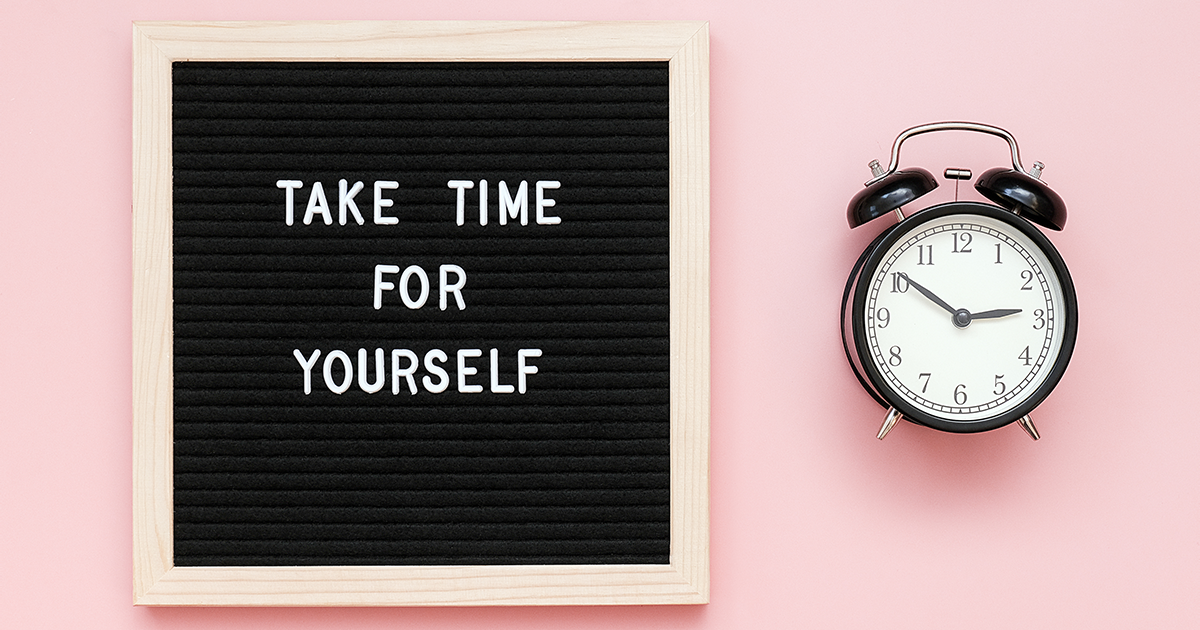
How to be Happy: 7 Totally Doable Ways to Refill Your Bucket on a Budget
Oh man. This week, month, year has been a bear. Time for a break, anyone? (At least a coffee break!) If you’re wondering how you can possibly keep up with life when you—and your wallet—are constantly being drained, I feel ya, friend! In fact, everyone is feeling the stress. This year marks the first major stress increase in the U.S. since the American Psychological Association began their survey in 2007.1 So let’s help each other out. Here’s how we can refill our buckets on a budget.
Bring on the good smells!
There’s a reason why scented candles are the classic romantic ploy. They are soothing to the senses, cast a warm glow, etc. etc. And the truth is, they actually do benefit us! Scents like lavender, cinnamon, orange, peppermint, and vanilla are proven to help relieve stress and anxiety, according to psychotherapists.2 Many people go straight to the Yankee Candle jar variety. They smell great and burn well, but ugh. The hefty price tag is not a fav. Instead, maybe try:
And if you’re not a candle person, that’s okay! (What, you don’t like open flames in your house?) Opt for essential oils. You can put a few drops in a cool mist diffuser, a spray bottle, or even dab on your forehead. The roll-on PastTense blend from doTERRA costs about $26 on Amazon, but Plant Therapy’s Tension Relief roll-on has many of the same ingredients for less than half that price. And hey, if it helps avoid popping pain-killers, count me in!
Elevate your cleaning routine
Don’t know about you, but cleaning and sanitizing seems to be the official 2020 mantra. In all reality, keeping a clean and organized environment could actually help us psychologically, too. A clean home promotes physical health, lowers stress, increases quality of sleep, and helps us focus.3
So why not make cleaning kind of fun? Try investing in:
- some pretty plastic spray bottles
- your own homemade cleaning solutions
- or even Blueland’s refill tablets for multi-surface, glass, or bathroom cleaning
BONUS: refill tablets take up almost zero cabinet space, plus they’re non-toxic and environmentally friendly.
Listen to some sweet jams (the soothing kind, that is)
If you needed an excuse to put in some earbuds and bliss out to music, this is it. Years of medical research suggest that music can decrease stress and lift the mood.4 Classical music like Mozart, in particular, has helped patients recover better from heart attacks by decreasing heart rates, breathing rates, oxygen demands, and levels of anxiety.
To get your classical music for free, try streaming:
- Mozart piano sonatas on YouTube,
- Chopin Nocturnes on YouTube,
- a classical Music for Reading playlist from Spotify, or
- a more contemporary (but equally relaxing) album like Living Room Songs by Ólafur Arnalds on Amazon Music.
Get outside!
Now that the weather is finally starting to get cooler (fingers crossed!) it’s time to get our groove back…outside. Spending time in nature can improve short-term memory, restore mental energy, relieve stress, reduce inflammation, improve concentration, sharpen creativity, and boost immunity.5 So:
- find a city, state, or national park near you and explore some trails, or
- spend some time weeding or planting flowers in your own yard or garden.
Some days are FREE to visit parks that usually charge a fee. And to save money on plants, keep in mind that home improvement stores and nurseries will most likely offer lots of clearance options in the fall for trees, bushes, bulbs, and perennials. Better yet, ask your friends or check Craigslist or Facebook Marketplace for free plants that people have divided from their own gardens and want to throw out.
Find reasons to be thankful
The old saying, “Count your blessings,” is actually great advice. There’s a popular class taught at Yale University called “Psychology and the Good Life,” and it basically teaches people how to be happy. Turns out, even people at the top need help with that! That’s because it’s hard to enjoy what we already have, according to the teacher of the course, Laurie Santos.6
So her advice? Pause. Pay attention. Be thankful for what you have. Keep a gratitude journal on daily sticky notes, a white board, the notes app on your phone, or an actual physical journal. Try:
- pocket-sized spiral memo books or
- make your own fun journal by up-cycling junk mail envelopes! (FREE)
Dig deep…find your inner artist
There’s a reason why preschoolers everywhere go nuts with a box of crayons. Doing art is fun, even if you’re bad at it! It turns out, it’s even good for you. After less than an hour of making art, you’ll likely have less stress and reduced anxiety according to some studies.7
And wait! Before you head to Hobby Lobby, get your art supplies for FREE (or at least very cheap).
- Your own home could probably supply flour, water, and newspaper for a paper mache project.
- Brown paper grocery sacks can be dismantled and reused for drawing or painting.
- Seldom-used makeup brushes can be used as paint brushes.
- Paint stores will sometimes sell mistint paints at a steep discount.
- And some recycling and hazardous household waste centers might even give away paint for free.
LOL…literally
You know that friend you miss to pieces? Call that person! Talk. LAUGH. Staying social is more important now more than ever, even if you can’t be in the same room. Use Zoom, Google Meet, Facetime, or Facebook messenger to video chat with your bestie. Mayo Clinic actually recommends laughing to relieve stress, sooth tension, relieve pain, and improve mood and immunity.8
If you can’t muster the social energy to laugh with a friend IRL (um, hello fellow introverts!), virtual friends or casual acquaintances can sometimes be good substitutes. So instead of that super intense period drama, sci-fi thriller, or crime show you’re watching, try:
- watching a funny sitcom like Space Force on Netflix, or
- attending a laughing class! (Yes. That’s a real thing.)
Carry on!
Life is full of demands, especially in 2020. You’re either working hard at your job, or looking hard to find a job, and trying your best to fulfill all your family obligations in between. There are just too few hours in a day. And sometimes? Too few bucks to spend. But good news! Sometimes you can—and you definitely should—be your own best advocate first. So go. Take some time for yourself and refill your own bucket. Then you can move on down your ever-growing to-do list with a refreshed mindset.
Sources:
- Staff. (2020, May). Stress in America™ 2020: Stress in the Time of COVID-19, Volume One. Retrieved from: https://www.apa.org/news/press/releases/stress/2020/report. ↩︎
- Chalkia, Chryssa. (2018, August 27). Scented candles to reduce anxiety. Retrieved from: https://www.counselling-directory.org.uk/memberarticles/scented-candles-to-reduce-anxiety. ↩︎
- Ryback, R. (2016, July 11). The Powerful Psychology Behind Cleanliness. Retrieved from: https://www.psychologytoday.com/us/blog/the-truisms-wellness/201607/the-powerful-psychology-behind-cleanliness. ↩︎
- Staff. (2011, July). Music and health. Retrieved from: https://www.health.harvard.edu/staying-healthy/music-and-health. ↩︎
- Friedman, L. and K. Loria. (2014, April 9). 11 Scientifically Proven Reasons You Should Go Outside. Retrieved from: https://www.businessinsider.com/11-reasons-you-should-go-outside-2014-4. ↩︎
- Pinsker, J. (2019, June 25). The Yale Happiness Class, Distilled. Retrieved from: https://www.theatlantic.com/family/archive/2019/06/yale-happiness-class/592477/. ↩︎
- Kane, S. (2016, June 29). 7 science-backed reasons you should make art, even if you’re bad at it. Retrieved from: https://www.businessinsider.com/why-you-should-make-art-even-if-youre-bad-2016-6#1-making-art-may-reduce-stress-and-anxiety-1. ↩︎
- Mayo Clinic Staff. (n.d.). Stress relief from laughter? It’s no joke. Retrieved from: https://www.mayoclinic.org/healthy-lifestyle/stress-management/in-depth/stress-relief/art-20044456. ↩︎



